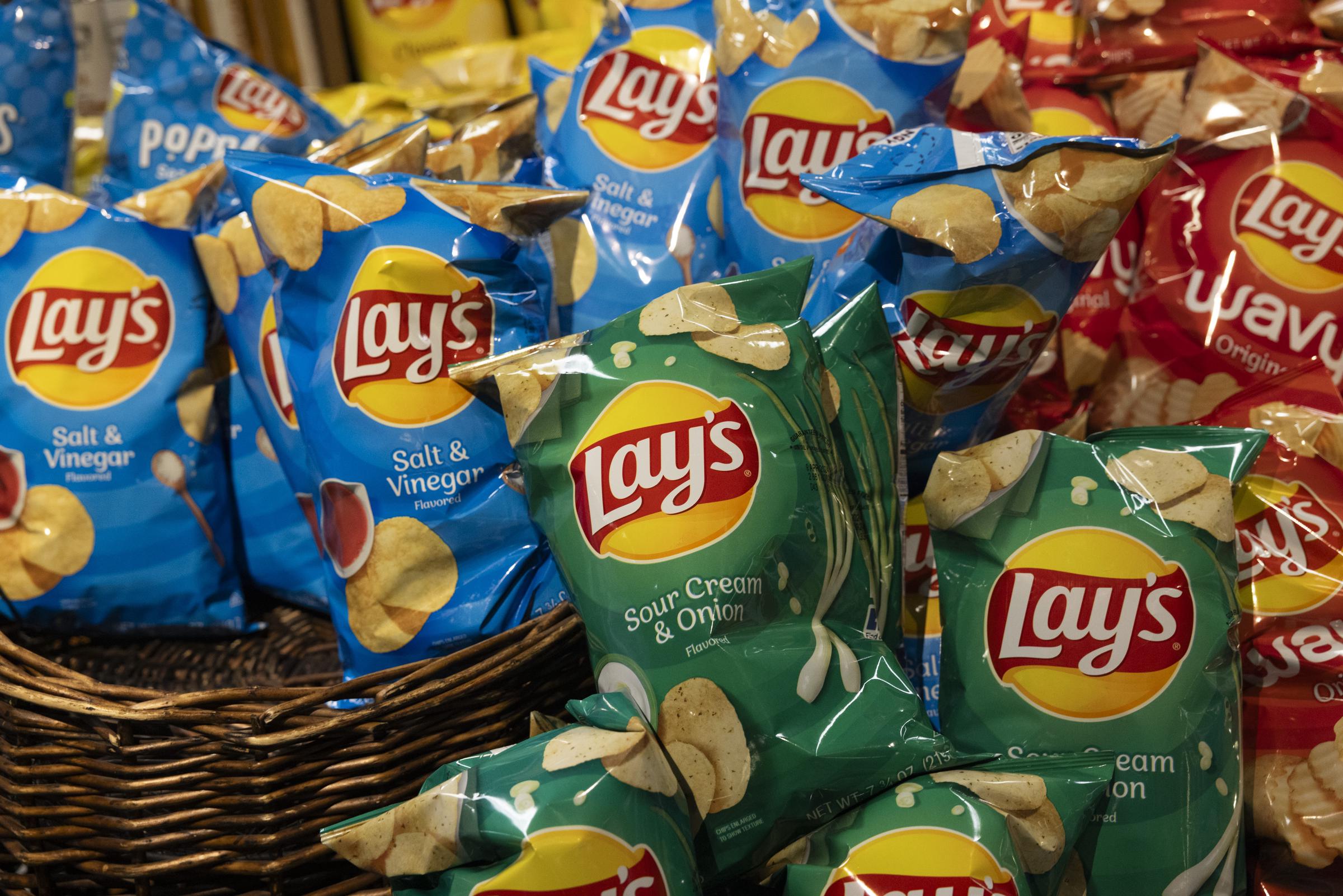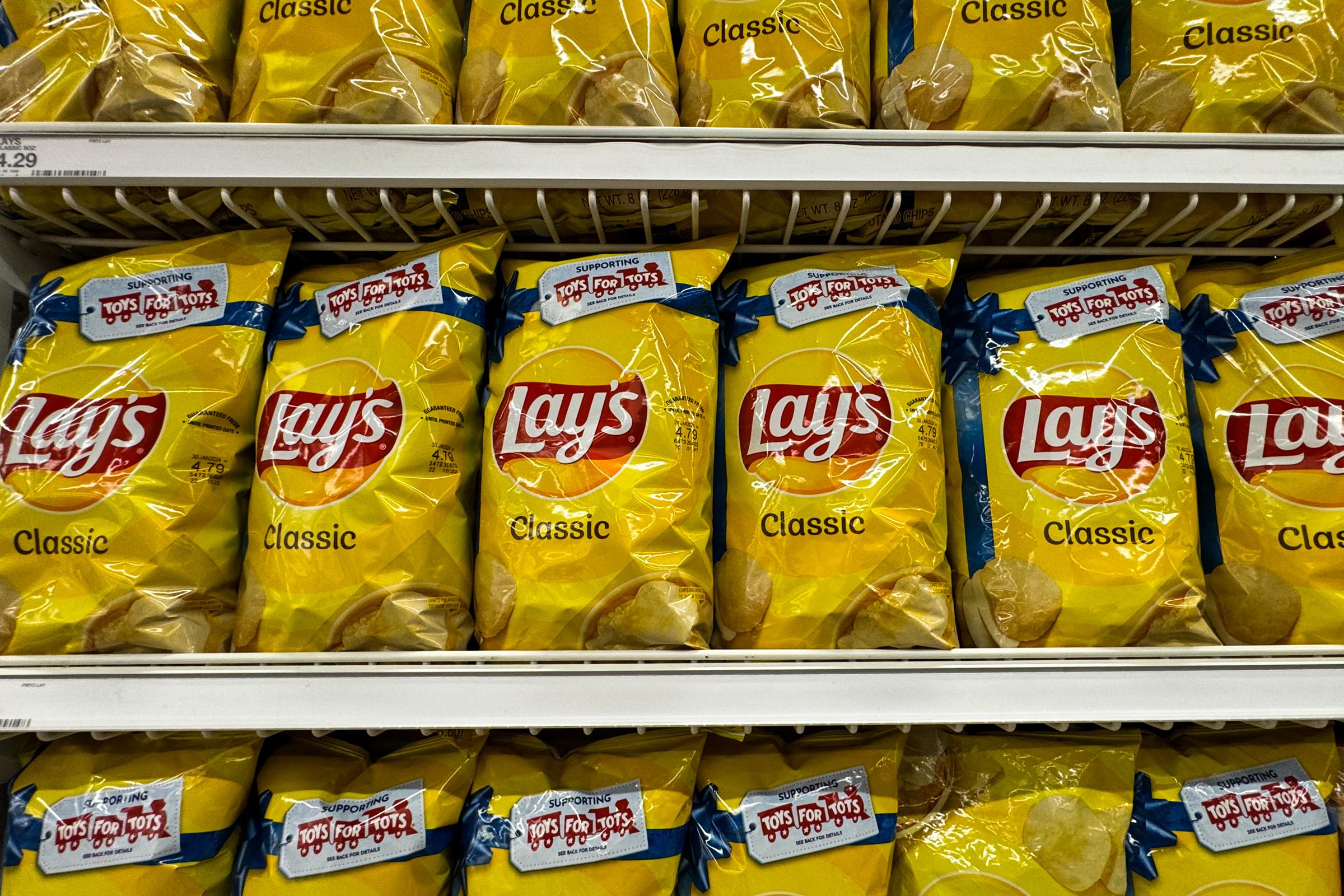When it comes to your favorite snack brands, the last thing you’d expect is a recall notice. However, even the biggest names in the industry aren’t immune to occasional hiccups. Recently, Frito-Lay issued a limited recall on one of their most iconic products, Lay’s Classic Potato Chips, across specific regions.
What Happened: Frito-Lay’s Official Recall Announcement

On December 16, 2024, Frito-Lay made an official announcement on their website regarding the recall of certain 13 oz. bags of Lay’s Classic Potato Chips. The reason? A potential allergen threat due to undeclared milk content in specific batches of chips.
This recall came after a consumer alert brought the issue to light. According to Frito-Lay, the affected chips were distributed to select retail and e-commerce outlets in Oregon and Washington. The company clarified that customers may have purchased these items as early as November 3, 2024.
The Details: Identifying the Affected Products
Frito-Lay has been transparent in providing specific information about the recalled products to help consumers identify them. If you’re wondering whether your favorite bag of Lay’s is part of the recall, here’s what to check:
- Product: Lay’s Classic Potato Chips (13 oz. bag)
- “Guaranteed Fresh” Date: February 11, 2025
- UPC: 28400 31041
- Manufacturing Codes: 6462307xx or 6463307xx
If you have a milk allergy, it’s recommended that you immediately discard the chips or return them to the place of purchase for a refund. Thankfully, no allergic reactions have been reported so far, but the potential risk remains significant.
Why the Recall Matters: Undeclared Milk and Its Risk
Milk allergies are among the most common food allergies, especially in children, and they can cause a range of adverse reactions. The issue lies in proteins like casein and whey, which the immune system mistakenly identifies as harmful. For individuals with milk allergies, consuming even trace amounts can lead to severe symptoms or life-threatening reactions.
Common Symptoms of Milk Allergies
- Immediate Reactions: Hives, swelling, wheezing, vomiting, and throat irritation.
- Delayed Reactions: Digestive issues like diarrhea or abdominal cramps, as well as respiratory problems such as a runny nose.
- Severe Reactions: Anaphylaxis, characterized by difficulty breathing, a drop in blood pressure, and potential shock.
While lactose intolerance is often confused with a milk allergy, it’s essential to note that they are entirely different conditions. Lactose intolerance is a digestive issue, whereas a milk allergy involves an immune system response.
Frito-Lay’s Response: Transparency and Assurance
In a statement to Newsweek, a Frito-Lay representative emphasized the company’s commitment to consumer safety and transparency. They reassured customers that no other Lay’s products, flavors, or variety packs are affected by this recall.
Additionally, two days after the announcement, the FDA published the details on their website to amplify awareness and ensure public safety. Frito-Lay’s proactive measures reflect their dedication to addressing the issue swiftly and responsibly.
Understanding Milk Allergies: Causes and Challenges

According to the Mayo Clinic, milk allergies occur when the immune system reacts abnormally to milk proteins. These reactions can be triggered not only by cow’s milk but also by milk from other mammals, such as goats or sheep.
Key Risk Factors for Milk Allergies
- Family History: Allergies, asthma, or eczema in close relatives.
- Age: Young children are more susceptible as their digestive systems are still maturing.
While most children outgrow milk allergies, some carry them into adulthood, necessitating lifelong vigilance.
Living with a Milk Allergy: Tips for Safety
For those affected by milk allergies, avoiding exposure is the best prevention strategy. However, given the widespread presence of milk proteins in processed foods, vigilance is critical.

Practical Steps for Managing Milk Allergies
- Read Labels: Look for terms like “casein,” “whey,” or “lact-” (e.g., lactose).
- Ask Questions: Inquire about food preparation when dining out. Even dishes like grilled steak may be cooked with butter.
- Carry Emergency Epinephrine: An EpiPen can be a lifesaver in case of accidental exposure.
Parents of children with milk allergies must take extra precautions. For infants, breastfeeding or hypoallergenic formulas are recommended. If breastfeeding, mothers should eliminate dairy from their diets to avoid passing milk proteins to their babies.
The Bigger Picture: Nutrition and Quality of Life
Living with a milk allergy goes beyond avoiding certain foods—it impacts overall quality of life. Dietary restrictions can lead to nutritional deficiencies, particularly in calcium and vitamin D. Consulting a healthcare provider or dietitian can help individuals maintain balanced nutrition through supplements or alternative foods.

The psychological toll of constantly monitoring food choices is another challenge. However, with education, support, and careful planning, individuals with milk allergies can lead fulfilling lives.
Conclusion: Staying Vigilant and Informed
Frito-Lay’s recall of Lay’s Classic Potato Chips serves as a reminder of the importance of transparency and vigilance in the food industry. While the recall affects a limited number of products in Oregon and Washington, it highlights a critical issue for individuals with milk allergies.
For consumers, staying informed and checking product details are essential steps to ensure safety. For companies, maintaining rigorous quality control and addressing concerns promptly builds trust and protects public health.
As the story unfolds, it’s clear that Frito-Lay’s swift action and clear communication reflect a strong commitment to consumer safety. Whether you’re a Lay’s fan or simply a concerned snack lover, this recall emphasizes the value of awareness and responsible choices in navigating potential food allergens.


